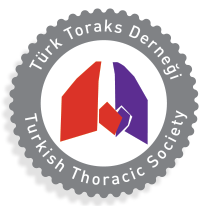Introduction: Multiple system atrophy (MSA) is a rare, degenerative neurological disorder affecting your body’s autonomic functions, including blood pressure, breathing, bladder function and muscle control. The prevalence of MSA is reported to be between 3.4-4.9 cases per 100,000 population. MSA shares many Parkinson’s disease-like symptoms, such as slow movement, rigid muscles and poor balance. Symptoms typically develop in adulthood, usually in the 50s or 60s. People typically live about seven to 10 years after multiple system atrophy symptoms first appear. Death is often due to respiratory problems.In these patients, respiratory distress can be manifested in the early stages by vocal cord dysplasia and stridor and this is seen as a poor prognosis criterion. It is important that this very rare condition comes to mind in terms of requiring urgent intervention.
Case Presentation: A 53-year-old woman presented to the emergency department with dyspnea. No additional symptoms. Her physical examination revealed expiratory and inspiratory stridor. When we look at her story, we learned that she was diagnosed with MSA in 2017 but did not come very regularly to follow-up. she stated that she received irregular levodopa treatment initiated by the patient neurology doctor’s. The patient’s vital signs were: 36.8 °C, pulse 92/min, arterial blood pressure 130/80 mmHg, respiratory rate 22/min, room air oxygen saturation 85%. The patient was followed up without any signs of chest radiography and thorax computed tomography. tomography A decrease in vocal cord motility after Otorhinolaryngology consultations was observed. This condition was considered as a complication of MSA.
Conclusion: Complications of MSA disease include difficulty in swallowing, loss of skill in activities, progressive mobilization difficulties and vocal cord paralysis which make breathing and speech difficult. Sudden shortness of breath and respiratory failure in our case should bring vocal cord dysplasia which is a complication of the disease. This situation is very rare and important because it requires emergency intubation in more severe cases.



.png)
